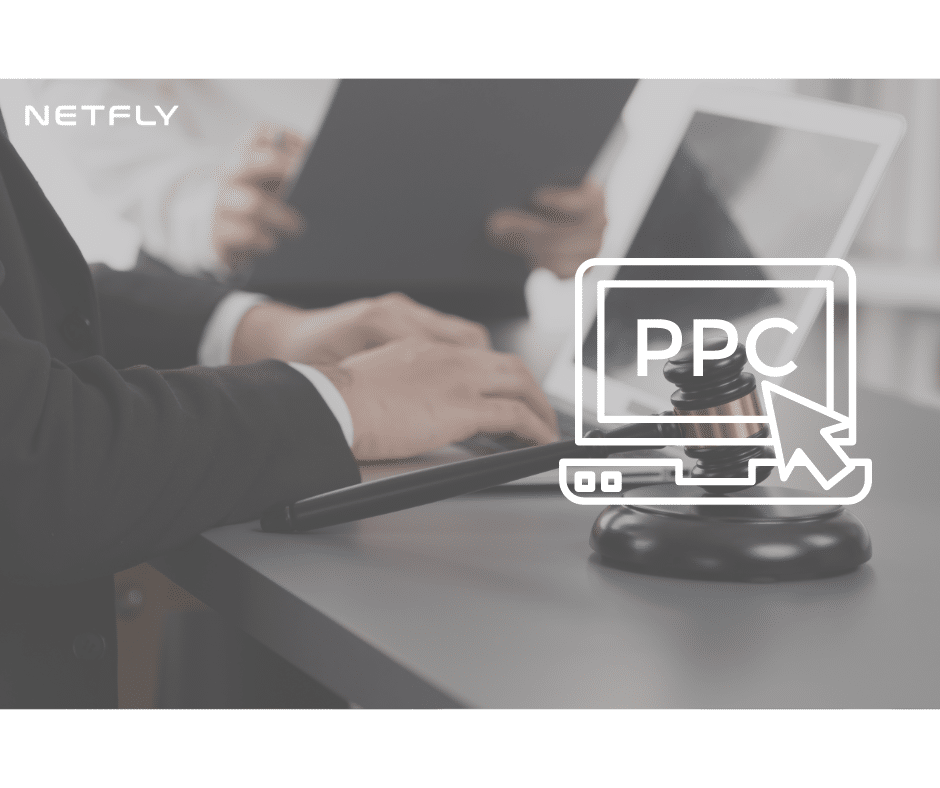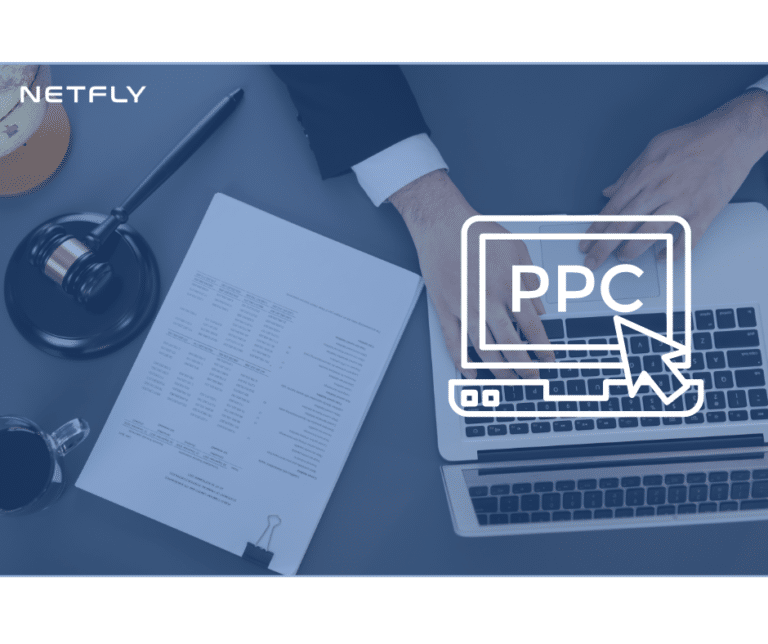Did you know that mastering Google PPC for law firms involves a unique blend of strategy and precision to stand out in a saturated digital market? Understanding the nuances of pay-per-click advertising can be the game-changer your firm needs to attract potential clients effectively. By implementing tailored keyword research, compelling ad content, and strategic optimization techniques, you can elevate your online presence and drive meaningful conversions. Stay tuned to uncover the key strategies that can propel your law firm to new heights in the domain of Google PPC advertising.
Key Takeaways
- Target high-intent keywords for better lead generation.
- Utilize ad extensions for increased visibility and engagement.
- Analyze performance data to optimize campaigns effectively.
- Implement conversion tracking to measure ROI accurately.
- Continuously refine and experiment with ad variations for maximum visibility.
Understanding Google PPC for Law Firms
To master Google PPC for law firms, a deep understanding of the intricacies and strategic nuances of this advertising platform is essential. Starting with PPC basics, it’s important to grasp the fundamental principles that govern pay-per-click advertising. With Google PPC, you pay each time a user clicks on your ad, making it essential to optimize your campaigns for maximum efficiency and effectiveness.
Law firm targeting is a key aspect of Google PPC. Understanding how to reach your specific audience within the competitive legal landscape is important. Targeting the right keywords related to your legal services can greatly impact the success of your PPC campaigns. By identifying and bidding on relevant keywords that potential clients are searching for, you can increase the visibility of your law firm’s ads and attract quality leads.
In mastering Google PPC for law firms, strategic decision-making plays a pivotal role. Crafting compelling ad copy that speaks to your target audience, optimizing landing pages for conversions, and continuously monitoring and adjusting your campaigns based on performance data are essential strategies for success. By combining a deep understanding of PPC basics with a tailored approach to law firm targeting, you can leverage Google PPC effectively to enhance your firm’s online presence and drive lead generation.
Keyword Research and Selection
In optimizing your law firm’s Google PPC campaigns, the foundation of success lies in meticulous keyword research and strategic selection. Understanding the nuances of keyword selection is important for maximizing visibility and generating quality leads. When conducting keyword research, consider incorporating both negative keywords and long-tail keywords to refine your targeting and attract the right audience effectively.
Negative keywords play an important role in your PPC campaigns by filtering out irrelevant traffic. By specifying negative keywords, you can avoid showing your ads to users searching for terms that aren’t aligned with your services. This helps in reducing wasted ad spend and guarantees that your ads are shown to users who are more likely to convert into leads.
Long-tail keywords, on the other hand, are more specific phrases that cater to users with a higher intent to seek legal services. While they may have lower search volumes compared to broad keywords, long-tail keywords often result in higher conversion rates due to their specificity. Incorporating a mix of long-tail keywords alongside broader terms can help you capture a qualified audience actively seeking legal assistance.
Crafting Compelling Ad Copy
When crafting compelling ad copy for Google PPC campaigns, your focus should be on structuring your message effectively to capture the audience’s attention.
Utilize persuasive language that resonates with your target market and prompts action.
Ad Copy Structure
Craft persuasive ad copy by strategically aligning messaging with your target audience’s needs and motivations. To enhance ad copy effectiveness, conduct A/B testing to determine which messages resonate best with your audience.
Personalizing ad copy can greatly increase engagement by creating a sense of connection with potential clients. Incorporating emotional appeal in your ad copy can evoke empathy and drive action.
Consider the pain points and aspirations of your target audience to craft compelling ad copy that speaks directly to them. Utilize language that resonates with their emotions and values, compelling them to click on your ad.
Persuasive Messaging
To captivate your target audience and drive engagement, tailor your ad copy to resonate with their specific needs and motivations through strategic messaging alignment. Crafting compelling ad copy for law firms requires a strategic approach that combines emotional appeal with a demonstration of your legal expertise.
Here are some key tactics to take into account:
- Highlight Your Legal Expertise: Showcase your firm’s experience and success in handling legal matters.
- Evoke Emotions: Appeal to your audience’s emotions by addressing their concerns and offering solutions.
- Use Strong Calls to Action: Encourage immediate engagement with clear and compelling calls to action.
- Focus on Benefits: Clearly communicate the benefits of choosing your firm to address potential clients’ needs.
Optimizing Landing Pages
Optimizing landing pages plays a pivotal role in enhancing conversion rates and maximizing the effectiveness of your law firm’s online presence. When it comes to conversion optimization, your landing page is the critical point where visitors decide whether to engage with your services or move on. To guarantee a successful user experience, your landing page must be meticulously crafted to guide visitors seamlessly towards taking the desired action.
To start, focus on creating a clear and compelling headline that instantly communicates the value proposition of your law firm. This headline should be complemented by concise and persuasive copy that highlights your firm’s expertise and unique selling points. Additionally, incorporating relevant visuals, such as high-quality images or videos, can further boost user engagement and convey professionalism.
Furthermore, streamline the navigation on your landing page to make it easy for visitors to find the information they’re looking for. A clutter-free layout with strategic placement of call-to-action buttons can have a significant impact on conversion rates. Remember, simplicity is key when designing your landing page; avoid overwhelming visitors with excessive information or unnecessary elements that could divert from the main message.
Setting Up Conversion Tracking
Setting up conversion tracking is an essential step in monitoring the effectiveness of your law firm’s online marketing efforts. When it comes to optimizing your Google PPC campaigns for maximum results, tracking conversions is key to understanding what strategies are working and where improvements are needed. Here are some important points to keep in mind:
- Conversion Optimization: Implementing conversion tracking allows you to analyze which keywords, ads, or campaigns are driving the most valuable actions on your website, such as form submissions or phone calls. This data is important for refining your campaigns to focus on what brings in the most leads.
- Tracking Effectiveness: By setting up conversion tracking, you can measure the ROI of your PPC efforts accurately. Knowing which campaigns are generating the most conversions and at what cost enables you to allocate your budget more effectively towards high-performing strategies.
- Enhanced Decision Making: With conversion tracking in place, you can make data-driven decisions to optimize your campaigns continually. This information empowers you to adjust your bidding strategies, ad messaging, and landing pages based on real results, leading to improved performance over time.
- Continuous Improvement: Conversion tracking provides valuable insights that allow you to iterate and improve your online marketing efforts consistently. Monitoring conversions helps you stay agile in a competitive landscape and adapt your strategies to meet the evolving needs of your target audience.
Budgeting and Bidding Strategies
Implementing effective budgeting and bidding strategies is essential for maximizing the success of your Google PPC campaigns for law firms. Bid management plays an important role in guaranteeing that your ads are displayed prominently for relevant keywords. It involves strategically setting bids to compete in auctions while considering factors like keyword performance, competition, and target audience behavior.
Budget allocation is another critical aspect that directly impacts the performance of your PPC campaigns. By strategically distributing your budget across different campaigns and ad groups based on their performance and goals, you can ensure efficient utilization of resources. Monitoring and adjusting your budget regularly is vital to allocate more funds to high-performing campaigns and reallocate resources from underperforming ones.
To optimize your bidding strategies, consider using automated bidding tools provided by Google Ads. These tools can help you adjust bids in real-time based on various factors like device, location, time of day, and audience demographics. Additionally, conducting A/B testing with different bid strategies can provide valuable insights into which approach works best for your law firm’s PPC campaigns.
Ad Extensions for Maximum Impact
How can you leverage ad extensions to maximize the impact of your law firm’s Google PPC campaigns?
- Call Extension: Guarantee potential clients can easily reach out to your firm directly from the ad.
- Location Extension: Display your law firm’s address to attract local clients searching for legal services near them.
- Sitelink Extension: Direct users to specific landing pages on your website for different legal services you offer.
- Review Extension: Showcase positive reviews and ratings to build trust and credibility with potential clients.
Ad extensions play an essential role in enhancing the visibility and effectiveness of your Google PPC ads. By incorporating call extensions, you provide a direct line of communication for interested individuals to connect with your firm promptly. Location extensions are invaluable for attracting clients in your local area by displaying your office address directly in the ad. Sitelink extensions allow you to guide users to relevant sections of your website, making it easier for them to find the information they need. Additionally, leveraging review extensions can help establish credibility and trust with potential clients by showcasing positive feedback from previous clients. When used strategically, ad extensions can greatly improve the performance of your law firm’s PPC campaigns, driving more qualified leads and maximizing your online visibility.
Monitoring and Analyzing Performance
To optimize the performance of your law firm’s Google PPC campaigns, meticulous monitoring and analysis are essential. Monitoring performance metrics allows you to track the effectiveness of your ads in real-time. Key performance indicators such as click-through rates, conversion rates, and cost per click provide valuable insights into the success of your campaigns. By regularly analyzing these metrics, you can identify trends, patterns, and areas for improvement.
Data analysis plays a vital role in understanding the impact of your PPC campaigns. By delving into the data, you can uncover which keywords are driving the most traffic, which ad copy is resonating with your audience, and which landing pages are converting visitors into leads. This information empowers you to make data-driven decisions to optimize your campaigns for maximum results.
Moreover, monitoring and analyzing performance data enable you to make timely adjustments to your campaigns. If you notice that a particular ad is underperforming, you can quickly pause it and allocate your budget to better-performing ads. This proactive approach ensures that your marketing dollars are spent efficiently and effectively.
In essence, performance metrics and data analysis are the foundation of successful Google PPC campaigns for law firms. By continuously monitoring and analyzing your campaign data, you can refine your strategies, improve your ROI, and ultimately drive more leads and conversions for your firm.
Continuous Optimization for Success
To propel your law firm’s Google PPC campaigns towards even greater success, maintaining a continuous optimization focus is crucial. Here are some key strategies to help you achieve top-notch results:
- Regularly Review Ad Campaign Performance: Keep a close eye on how your ads are performing to identify areas for improvement and capitalize on successful tactics.
- Test Different Ad Variations: Experiment with diverse ad formats, messaging, and visuals to determine what resonates best with your target audience and drives the most conversions.
- Refine Keywords Based on Performance Metrics: Analyze keyword performance metrics such as click-through rates and conversion rates to continuously enhance your keyword selection.
- Optimize Landing Pages for Conversions: Make sure that your landing pages are aligned with your ad messaging and optimized for conversions to maximize the impact of your PPC campaigns.
Frequently Asked Questions
How Can Law Firms Leverage Local Targeting in Google PPC Campaigns?
When focusing on local optimization in Google PPC campaigns, targeting strategies play a significant role. By honing in on specific geographic locations, law firms can tailor their ads to reach potential clients in targeted areas.
Utilize location-based keywords and ad extensions to enhance visibility within your desired market. Implementing geotargeting and geofencing tactics can further refine your reach, ensuring your ads are seen by those most likely to require legal services.
What Role Does Negative Keyword Targeting Play in Google Ppc?
When it comes to Google PPC, negative keyword targeting is essential for improving ROI. By excluding irrelevant terms, you optimize your ad spend, ensuring your ads reach the most qualified leads.
Think of it as a precision tool honing in on your target audience. Mastering this strategy can be a game-changer for your campaigns, saving money and boosting conversions.
Is It Essential for Law Firms to Use Ad Extensions in PPC Ads?
When considering ad extensions in PPC ads for law firms, they play a key role in boosting visibility and engagement. Incorporating extensions like callouts, sitelinks, and structured snippets can enhance ad copywriting, leading to higher Quality Scores.
How Does Remarketing Benefit Law Firms in Google PPC Advertising?
When you immerse yourself in remarketing, it’s like planting seeds that grow into a forest of opportunities.
By targeting users who’ve already engaged with your site, you’re nurturing potential clients, increasing conversions, and building brand awareness.
This strategic approach keeps your law firm top of mind and maximizes the chances of converting leads into loyal clients.
What Are Some Common Pitfalls to Avoid in Google PPC for Law Firms?
When managing your Google PPC campaigns for your law firm, avoid common pitfalls. Make sure you handle budget management wisely to maximize ROI.
Optimize your ad copy for higher click-through rates.
Pay attention to landing page optimization for better conversion rates.
Conduct competitor analysis to stay ahead.
Final Thoughts
As you master the art of Google PPC for law firms, remember that visibility and lead generation are key. By strategically implementing all the tactics discussed, you’ll surely see success in your campaigns.
Ironically, in a world where competition is fierce, your strategic approach will make you stand out like a beacon in the digital landscape. So, keep refining, keep optimizing, and watch as your law firm shines brighter than the rest.










